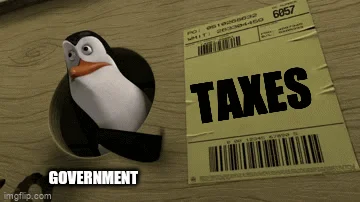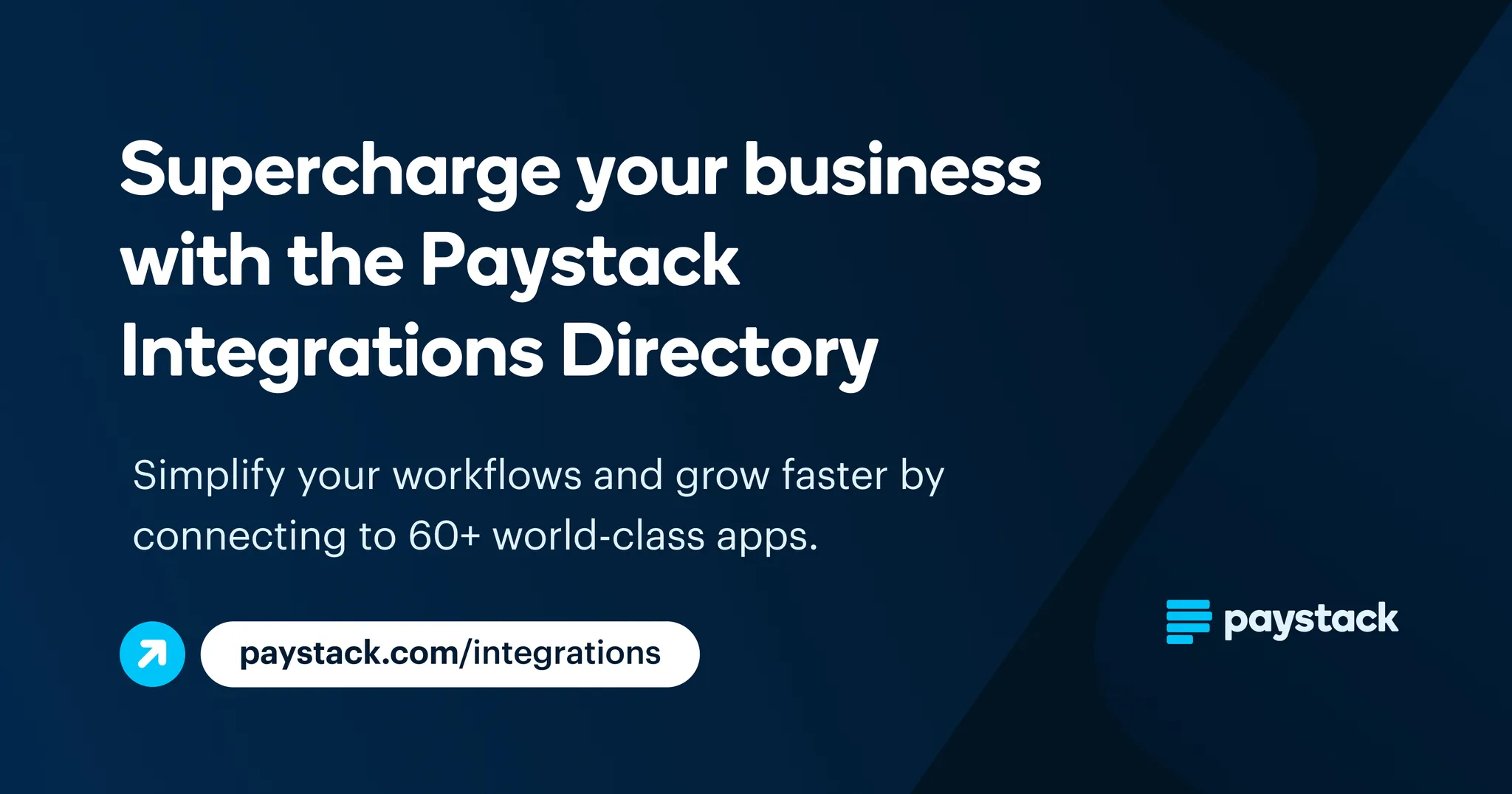- 👨🏿🚀TC Daily
- Posts
- ‘You’ve been a good boy’
‘You’ve been a good boy’
Hot Take: We don’t need more fintechs.


Happy Independence Day. 🇳🇬️️
After a short but fulfilling stint writing your daily dose of Africa’s tech news, I’ll be signing off from the newsletter team. It’s been a privilege curating these stories with you, and I’m excited to keep reading fresh insights from Yemi, Zia, and Emmanuel.
But this isn’t goodbye. You’ll find me at Moonshot this October, where I’ll be joining the entire TechCabal team to welcome you to one of the biggest tech gatherings on the continent. I can’t wait to hear from speakers like Kate Kallot, Uwem Uwemakpan, and Alex Tsado, as they unpack what the future of AI means for Africa.
See you in two weeks!
—Ife

Economy
Nigeria and South Africa could exit the FATF Greylist next month

Nigeria and South Africa are likely to be removed from the Financial Action Task Force’s (FATF) Greylist next month. Both countries were flagged in 2023 for weak anti-money laundering (AML) and terrorist financing controls. Assessors from the Paris-based FATF conducted on-site visits and have noted significant progress. Nigeria, South Africa, Burkina Faso, and Mozambique are expected to exit the list on October 24.
To exit the grey list, the affected countries must address the shortfalls identified in FATF's recommendations by strengthening their Anti-Money Laundering (AML)/Countering the Financing of Terrorism (CFT) sectors.
Why an exit could happen now: Nigeria and South Africa have been working hard to exit the grey list. Nigeria pushed stricter rules, rolled out compliance circulars from its Central Bank, and carried out random inspections. South Africa had agreed with the FATF to implement 22 action items as a condition for removal from the grey list, and, by June, had completed them all. With reforms being enforced, delisting now looks possible.
What it means: A 2021 study found that grey-listed nations typically suffer a sharp drop in capital inflows. Exiting the list could lower friction in payment rails and restore trust in cross-border flows in both countries. It is a signal to investors that the countries are ready for their inflows. Platforms like Mercury, a US digital bank that was once forced to block accounts of startups from grey-listed countries, may find fewer reasons to keep Africa out.
eCommerce Without Borders: Get Paid Faster Worldwide

Whether you sell in Lagos or Nairobi, customers want local ways to pay. Let shoppers check out in their local currency, using cards, bank transfers, or mobile money. Set up seamless payments for your global online store with Fincra today.
Regulation
Kenya wants to tighten its tax grip on Uber, Airbnb, and other foreign companies

African governments seem to have their eyes on taxes these days. First, Nigeria wants to target its remote workers for more taxes, and now Kenya wants to go after Big Tech companies.
Case in point: The Kenya Revenue Authority (KRA) wants new powers to force local banks and payment processors to withhold and remit taxes on behalf of foreign tech companies that don’t comply with tax rules. Its new draft regulations could impose a 3% charge on revenues from companies like Netflix, Amazon, OpenAI, Airbnb, and Uber earning money from Kenyan users.
Here’s how it works: If Netflix earns $100,000 from Kenyan subscribers, the KRA automatically assumes $10,000 (10% gross turnover) is profit, and taxes it at 30%. That’s $3,000 total for the government. KRA plans to collect the money not from Netflix directly but by ordering banks, card networks, and M-PESA to slice off the tax at the point of payment, meaning these foreign companies must now operate local accounts. A company would be deemed to have "significant economic presence" if services are accessed through Kenyan IP addresses, paid with Kenyan cards or mobile money, or billed to Kenyan addresses.
For consumers, this likely means higher subscription bills, pricier rides, and more expensive Airbnb stays as tech companies pass along the tax. But what makes Kenya stand out is the collection method. For the banks and mobile money operators, this could bring more compliance headaches and legal risks as they juggle between the demands of foreign companies and the government.
Paga is in USA

Big news! Paga is now live in the United States, with digital banking services designed for Africa’s diaspora! Eligible users can send, pay, and bank in US Dollars & Naira, safe, regulated, and borderless. Learn more.
Economy
Thousands of Kenya's digital export jobs face wipeout as US trade deal expires

Nearly 7,000 tech jobs in Kenya’s export processing zones are at risk after the African Growth and Opportunity Act (AGOA) expired on Tuesday, September 30. Without renewal, tariffs on Kenyan exports could jump above 30%, dismantling the 25 years of duty-free access that African goods and services sold in the US market have enjoyed.
ICYMI: The US government created AGOA to encourage economic development in Africa by making it easier for African businesses to compete in the American market. The idea: if African exporters can sell to US consumers without tax penalties, they'll create jobs and grow their economies.
Companies in the export processing zones (EPZs) have enjoyed some benefits: Tech firms like Sama import servers duty-free, provide AI data labeling services to US clients, and stay cost-competitive with India or the Philippines. AGOA's expiration means immediate tariffs and VAT on hardware, destroying their cost advantage. United Aryan, an apparel company, already cut 1,000 jobs this week, which is about 10% of its workforce.
Why does this matter? Even small cost increases trigger client relocations to cheaper markets. Banks are factoring tariff exposure into credit models, making it harder for firms to finance their payrolls. The squeeze could affect the availability of tech jobs in the Kenyan market.
All hope isn’t lost: The Trump administration backs a one-year extension, but that still needs congressional approval. Kenya seeks a bilateral trade deal as backup. Without either, October 1 triggers tariffs, threatening tech jobs alongside apparel exporters already cutting staff amid uncertainty.
Connect Paystack to the world’s best tools!

With the Paystack Integrations Directory, connect to 60+ powerful apps to streamline your business. Learn more here →
Ride-hailing
Uber adds women-only rides in South Africa

Uber has launched its Women Driver feature in South Africa, allowing female riders to request trips exclusively with women drivers. This move comes after rising concerns around safety for women in public transport and ride-hailing. Uber says the feature was adapted from its U.S. rollout, but tailored to South Africa, where personal security is a top factor in mobility choices.
Here’s how it works: When signing up to Uber, women can indicate their gender on the app. Once gender is enabled, they can request rides only from women drivers. Female drivers see these requests and know that it’s part of the Women Driver feature, allowing them to decide whether to accept or not. If a trip doesn’t feel comfortable for the driver, for example, if extra passengers are added, they can decline, and the request is cancelled automatically.
It’s not entirely new: Women-only options aren't unique to Uber. Bolt first rolled out its “Women Only” product in South Africa in 2021. Smaller homegrown apps have experimented with women-focused ride-hailing services. Kgosigadi Rides only has female drivers and caters exclusively to female users. Wanatu also allows riders to request rides with specific drivers.
Zoom out: The feature reflects Uber’s strategy to enhance confidence in its service. The platform is creating space for more women in ride-hailing who are either behind the wheel or in the backseat.
HOT TAKE! ☕️
We don’t need more fintechs.
Hear me out: if your minimum viable product (MVP) is just sending money, you’re not solving anything new. You’re just adding to the wealth of fintechs that already exist. This sector is already the most funded and often the easiest to scale. So why not build something that actually tackles a fresh problem? Unless your MVP goes beyond basic transfers, we really don’t need another fintech.
—Anonymous TC Daily reader
CRYPTO TRACKER
The World Wide Web3
Source:

Coin Name | Current Value | Day | Month |
|---|---|---|---|
| $114,580 | + 0.52% | + 6.39% | |
| $4,149 | - 0.66% | - 5.53% | |
| $48 | - 0.02% | - 0.02% | |
| $209.31 | - 0.18% | + 5.67% |
* Data as of 06.40 AM WAT, October 1, 2025.
🚨 Flash Sale: 25% Off Moonshot Tickets 🚨

For a limited time only, you can save your seat at Africa’s biggest tech gathering with an exclusive 25% discount. On October 15 & 16, the Eko Convention Centre in Lagos will host founders, investors, policymakers, creatives, and operators shaping Africa’s innovation economy. Moonshot 2025 will feature deal rooms, investor lounges, immersive exhibitions, and the TC Startup Battlefield. Moonshot 2025 is designed for real connections and lasting impact. This offer ends soon.
🎟️ Secure 25% off your Moonshot ticket now. Get tickets.
Events
- Entertainment Week Africa (EWA)—formerly Entertainment Week Lagos—returns to Lagos on November 18–23, 2025. Now a pan-African platform for the $58.4 billion creative economy, EWA has drawn 53,000+ attendees across film, music, fashion, and tech. This year’s edition introduces a dedicated film and music content market where artists, labels, directors, and publishers can pitch, licence, and sell directly to buyers and investors, supported by hands-on clinics to prep them for meetings. It will also feature a 50-company job fair, an expanded deal room accelerator with a ₦25 million seed fund, and more film premieres under the theme “Close the Gap.” Learn more here.
- The 10th FATE Business Conference takes place on September 26 in Lagos under the theme “AI-Powered Business: Innovate. Automate. Accelerate.” The conference will feature keynotes from Kofo Akinkugbe (SecureID) and Adedeji Olowe (Lendsqr), with panel discussions led by policymakers and business leaders including Olatunbosun Alake (Lagos State Government), Prof. Peter Adewale Obadare (Digital Encode), and Bode Abifarin (Strata). Expect practical insights on how AI is changing industries and powering business growth. Register here.
- Bigger, bolder, and more intentional. Following the resounding success of the inaugural summit in 2024, Growth Padi is thrilled to announce Growth Africa Summit 2025 (GAS 2.0) with the trailblazing theme: “Redefining the Growth Playbook.” Set against the backdrop of a fast-evolving entrepreneurial landscape, this year’s summit will challenge outdated strategies and usher in a new wave of radical, resilient, and relevant growth models tailored for African businesses. Register to attend by November 1.


Written by: Opeyemi Kareem and Ifeoluwa Aigbiniode
Edited by: Ganiu Oloruntade
Want more of TechCabal?
Sign up for our insightful newsletters on the business and economy of tech in Africa.
- The Next Wave: futuristic analysis of the business of tech in Africa.
- TC Scoops: breaking news from TechCabal
- TNW: Francophone Africa: insider insights and analysis of Francophone's tech ecosystem
P:S If you’re often missing TC Daily in your inbox, check your Promotions folder and move any edition of TC Daily from “Promotions” to your “Main” or “Primary” folder and TC Daily will always come to you.

How did you find today's edition of #TCDaily? |



